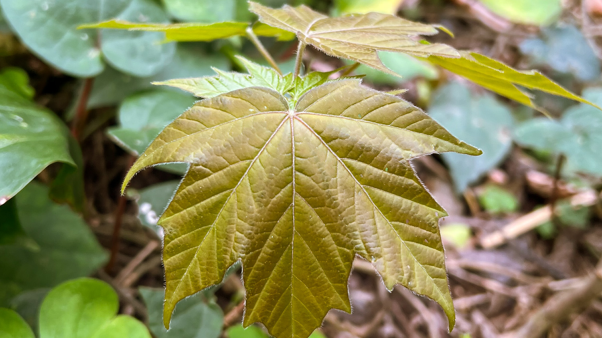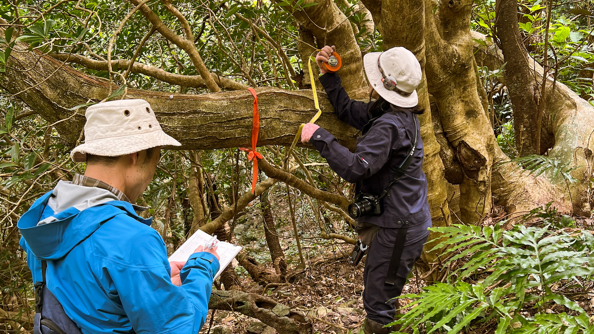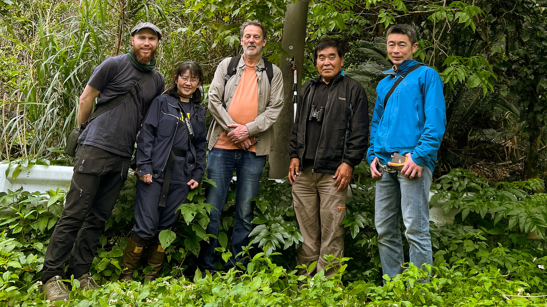A population survey of the world’s rarest maple tree offers hope for the endangered species, a conservationist has said.
Dan Crowley, tree conservation manager at Westonbirt Arboretum in Tetbury, Gloucestershire, was part of a team of researchers surveying the Amami maple on an island in southern Japan.
Their research found only 12 mature Amami maples in the wild but the discovery of three female specimens could help ensure the species’ reproductive future.
“While we were pleased to find that the wild status… is better than we feared, the species is still very much on the edge,” said Mr Crowley.


The team, which included experts from the University of British Columbia and Osaka University, took part in the first comprehensive survey of the world’s rarest maple on the island Amami-Oshihma.
They said they were encouraged by the presence of females and seedlings, but added that the species’ population was still “dangerously small”.
“Our fear was that there were no females in the population, but five of the trees were flowering and three of them were female, so although it’s not great, it’s better than we thought,” said Mr Crowley.
“We also saw a lot of seedlings and a lot of younger trees so there is hope that they might establish and the population will expand slightly.”


Globally, one in five maple species are at high risk of extinction and need conservation action.
Ikuyo Saeki, from Osaka University, said: “We unexpectedly found many regenerating trees. That is definitely an exciting finding.
“I hope our team will be able to obtain more information about reproduction, genetic diversity, and vegetation of the site, and keep communicating with local people and governmental organisations for future conservation.”


There are five Amami maples at Westonbirt which were were planted some years ago and flower every May.
“There are more Amami maples in gardens across the south of England than there are in the wild,” said Mr Crowley.
“Collections of endangered and threatened species in botanical gardens like Westonbirt Arboretum are a place where plants can be safeguarded.
“To secure its future we’d like to see a genetically-diverse collection planted at places like Westonbirt Arboretum and botanic collections across the globe.”
Follow BBC Gloucestershire on Facebook, X and Instagram. Send your story ideas to us on email or via WhatsApp on 0800 313 4630.







